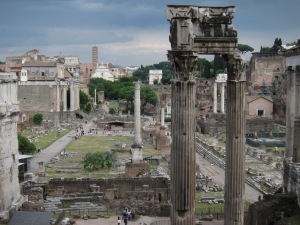Re-blogging from Shades of Umbria, 28 Jan. 2014. This is the 14th in a series of posts on the ethics of competition, focusing on Castel Rigone Calcio, and part of the ‘Ethics of Combat‘ category on quemdixerechaos. This blog series completes a DePauw University Faculty Fellowship that examines how and why rules and customs develop for, and in, combat and competition.
Two long shots stretch the netting inside the goal. One skids almost 30 yards along the ground, denting the tips of weary grass and divots of mud. The keeper Zucconi, just entered as a substitute, positions himself on the right side, but — his view shielded — he dives too late, eyes shoving his head back as he twists to watch the ball skid past. The other steams nearly 40 yards into the upper right corner as Zucconi flies helplessly past. Both come off the feet of a 22-yr. old Portuguese no. 10, Pedro Miguel Costa Ferreira, who was shooting at nearly every opportunity, and whose persistence (or selfishness) paid off in the second half for A.C.R. Messina in their 2-0 defeat of Castel Rigone. The YouTube highlights of the game (below) have now had more views than the 1000 who watched the match in a stadium that holds nearly…
View original post 571 more words


